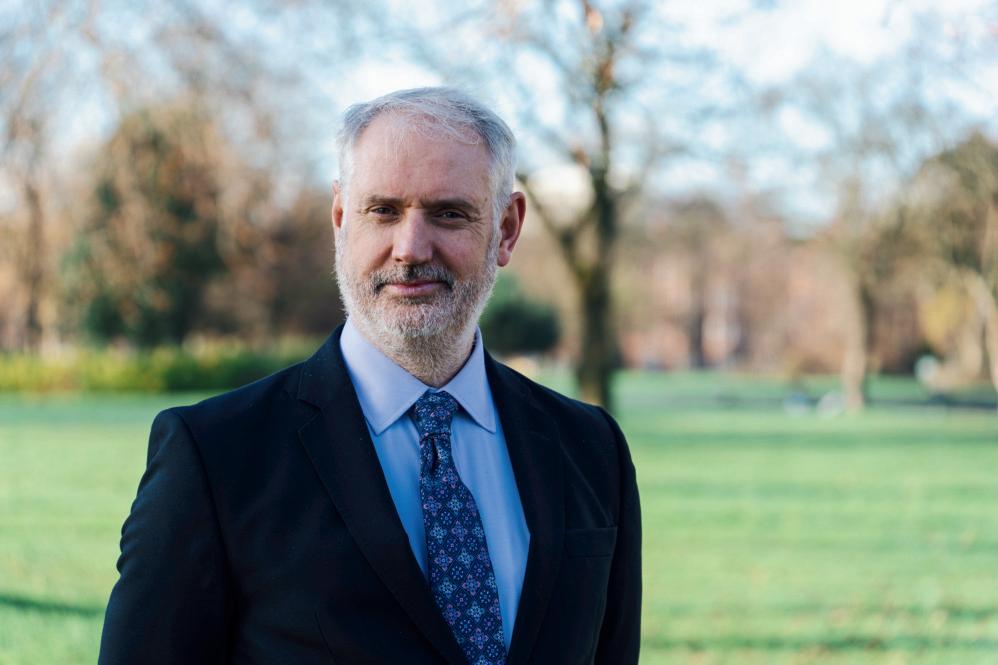THE GLASGOW BARONS: EARLY MUSIC FESTIVAL

26 - 28 JULY 2024
GOVAN OLD PARISH CHURCH





26 - 28 JULY 2024



FRIDAY EVENING • 26 JULY • 7.30PM • £1-£5
Hernando Franco (1532-1585)
Sancta Maria
Manuel de Zumaya (1678-1755)
Lamentations of Jeremiah
Francisco Guerrero (1528-1599)
Teresa, Teresaza
Juana Inés de la Cruz (1648-1695)
Madre, la de los primores
Francisco López Capillas (1614-1673)
Alleluia dic nobis Maria
Alonso Lobo (1555-1617)
Ave Regina coelorum
Tomás Luis de Victoria (1548-1611)
O quam gloriosum
Incipit oratio Jeremiae
O vos omnes

Juan Gutiérrez de Padilla (1590-1664)
Ave Regina
• INTERMISSION •
Nicolas Gombert (1449-1560)
Media Vita
Missa Sancta Maria
Audi Filia
Tulerunt Dominium meum
Vocal ensemble Cantus Firmus specialises in performing early music, with a focus on both sacred and secular Renaissance polyphony. The ensemble comprises 8 to 12 singers, depending on the needs of each project. Embracing a democratic approach to musical direction, Cantus Firmus operates with minimal conducting, with leadership shared among the singers.
Founded in 2015, Cantus Firmus originally sang for Choral Evensong services at St Mary's Episcopal Cathedral in Glasgow, filling in when the Cathedral’s choir was on holiday. Since 2018, the group has expanded its reach, performing in Glasgow, Edinburgh, Dumfries, and St Andrews, and now focuses primarily on concert performances. In February 2020, Cantus Firmus released its first album, "Sacred Europe", available on Spotify, Apple Music, and CD. When programming our concerts, we strive to perform a mix of well-known classics from the Renaissance period, while also introducing our audiences to lesser-known works from this era.
FRIDAY LATE NIGHT • 26 JULY • 10PM • £1-£5
Chant from the Sarum rite for the feast of St Anne (26 July). Medieval Chant with polyphony Joshua Stutter to ornament the plainchant hymn for St Anne-Ave Mater Anna. Chant with polyphony ascribed to Perotin including Dum Sigillum.
iuchair Ensemble is an early music vocal ensemble based in Glasgow, brought together by a shared interest in medieval music, particularly that of seldom–performed repertories. They put particular emphasis on bringing performance of early music up to date with current academic thinking. Working from bespoke editions enables us to reconsider how the music can be best performed. Previous programmes include: Pérotin: The Scottish Source, Passio, Lenten music by gentlemen of the Elizabethan Chapel Royal To Your Rude Health! 17th Century Catches and Drinking Songs, Messe de Nostre Dame, Guillaume de Machaut paired with Francis Poulenc’s Quatre petites prières de saint François d'Assise Missa Spiritus Almus, Petrus de Domarto
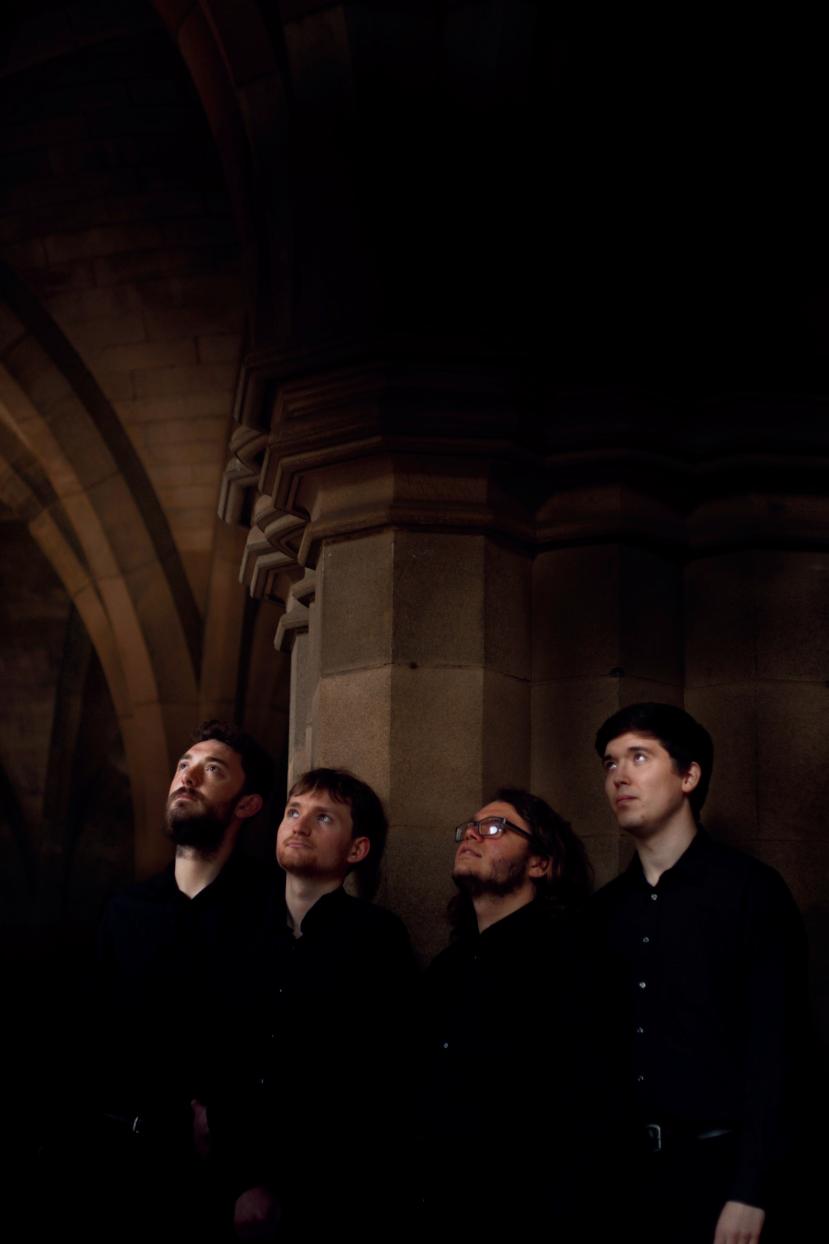
iuchair Ensemble have recently recorded a full-length concert video of Passio, and our programmes of Pérotin and of 17th– and 18th–century catches and drinking songs are also available on CD. We are currently preparing a new programme centred on the evolution of the genre of the motet from the medieval period to the present day.
Joshua Stutter Tenor
Edward Marshall Tenor
Joshua McCullough Bass
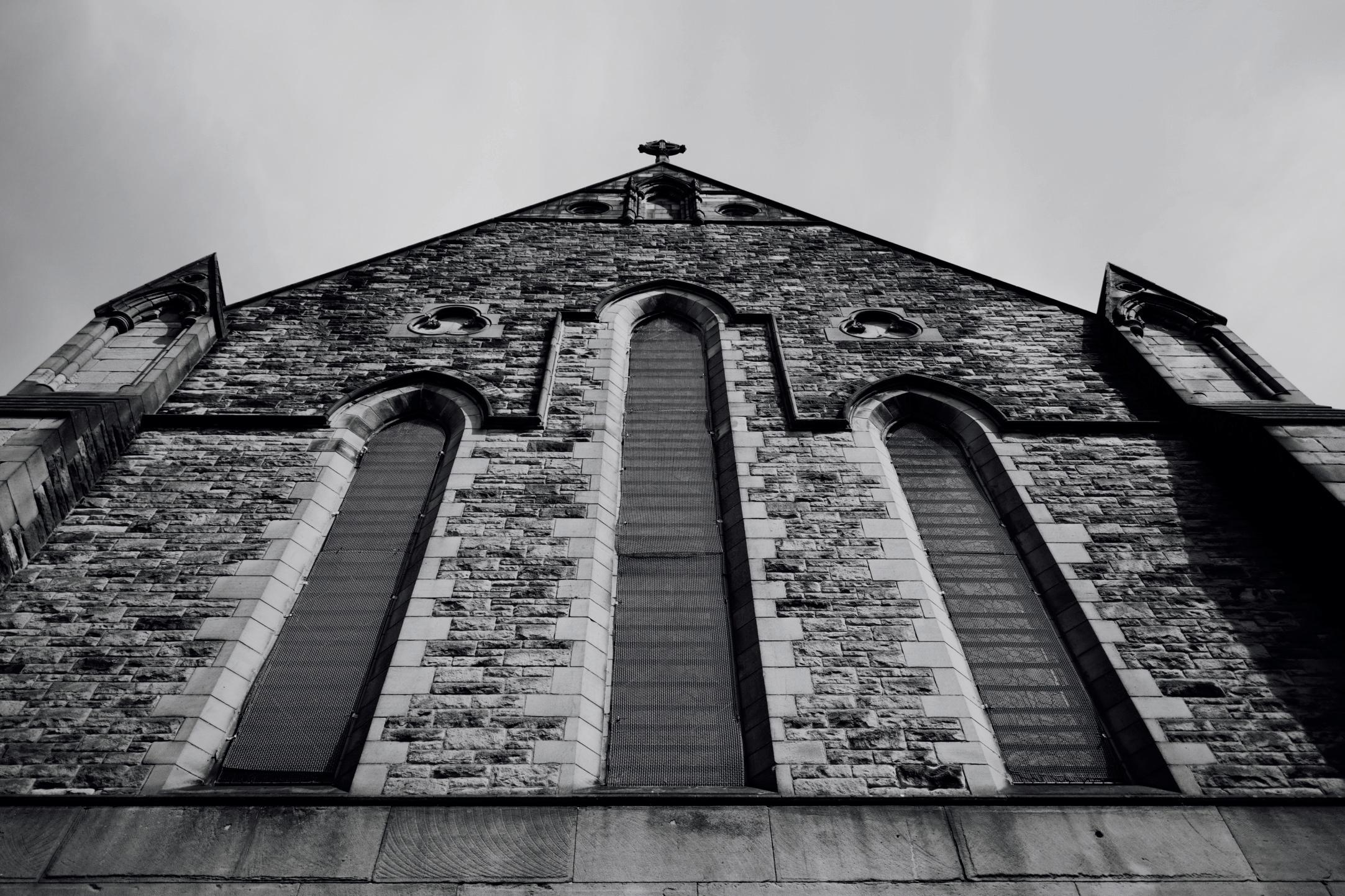
SATURDAY LUNCHTIME • 27 JULY 2024 • 12 NOON • FREE ENTRY
A Jigg by a young Lady of 7 years / The King's Jigg / A Trip to Oatland Collection: Ann Young, 1790
~ Catherine White (fl 1800), Lord Moira's March / A Female Amateur, Sally Kelly / Henrietta Baird (d. 1826) The 8th of December. Collections: Young Lady, 1804. Niel Gow, 1809
Mo cheist an tighearna (My Love the Lord) / Nighean dubh nan caorach (Dark Girl of the Sheep) / An tàillear odhar(The Dun-Coloured Tailor) / Nighean bhàn a' mhuilleir (The Miller's Fair-Haired Girl)
Collection: Eliza Ross of Raasay manuscript, 1812
~ Dear Lamb / Stirling of Keir's Reel / Perthshire Hunt Magdalene Stirling (1765-1846)
~ Stirling, Dunira Lodge, Sir William Stirling's Strathspey, The Earl of Elgin's Strathspey Collection: Magdalene Stirling, (1796)
~ Isabella Scott Gibson (1786-1838), Dark Lochnagar Collection: James Scott Skinner manuscript, 1843
~ White, Rural Felicity, Colonel W.F. Macbean, [Minuet], Mrs Macleod of Geanie's Collection: Young Lady, 1804.
~ Maria MacLean of Coll's Reel / Mo shopanach ministir (My silly wisp of a minister) / Uist Reel
Collection: Eliza Ross of Raasay manuscript, 1812
~ Catherine White, Lord Duncan. Thomas Calvert, Downshire Camperdown Quick Step Collections: Highland Ladies, 1796. Thomas Calvert, 1799.
Morag Johnston Violin
Alison McGillivray Cello
Aaron McGregor Violin & Harpsichord
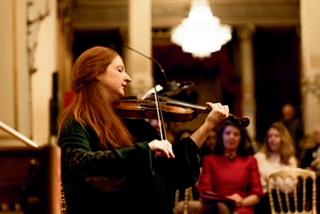
SATURDAY EVENING • 27 JULY 2024 • 7.30PM • £1-£5
J.S. Bach (1685-1750)
Trio Sonata in G Major, BWV 1038
Élisabeth Jacquet de La Guerre (1665-1729)
Violin Sonata No. 1 in D Minor
G.P. Telemann (1681-1767)
Paris Quartet No. 1 in G Major TWV43:G1
G.F. Handel (1685-1759)
Trio Sonata in F major op.5 no.6 HWV 401
J.S Bach
Trio Sonata from the Musical Offering - 20'
Butt Harpsichord
Huw Daniel Violin
Katy Bircher Flute
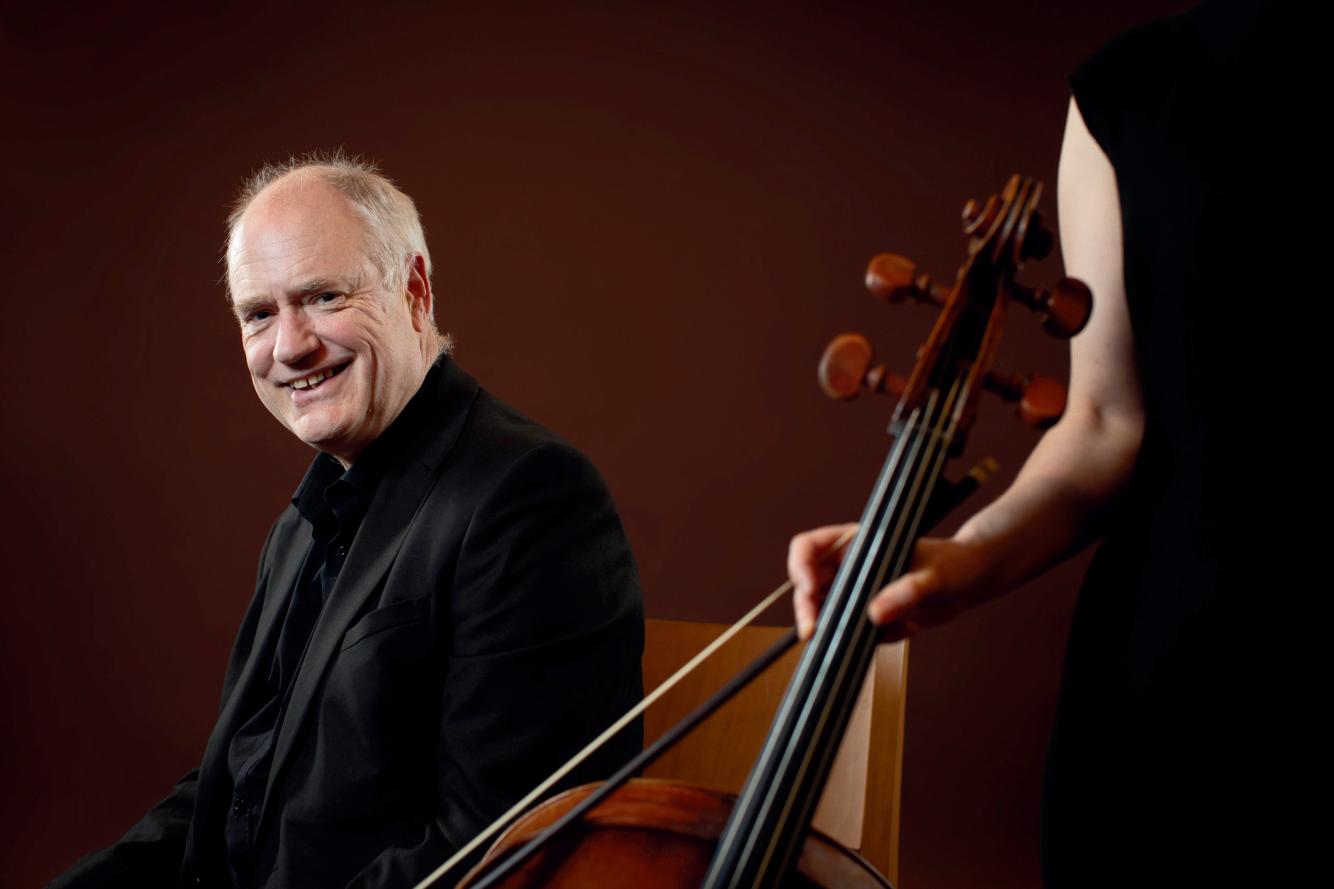
Lucia Capellaro Viola da Gamba & Cello
Formed in 1995, Edinburgh’s Dunedin Consort is one of the world’s leading Baroque ensembles, recognised for its vivid and insightful performances and recordings. Under the direction of John Butt, the ensemble has earned two Gramophone Awards, a BBC Music Magazine Award, a Grammy nomination, and the 2021 recipient of the Royal Philharmonic Society Ensemble Award. Dunedin Consort performs regularly at festivals and venues across the UK and abroad, and enjoys close associations with the BBC Proms, Wigmore Hall,
Edinburgh International Festival and Lammermuir Festival. As an enthusiastic champion and commissioner of contemporary music, recent premiere’s include orchestral dances at the BBC Proms, an opera by Errollyn Wallen, choral music by Caroline Shaw, and a guitar concerto by Cassandra Miller for Sean Shibe.
Dunedin Consort is committed to a wide-ranging education programme both in schools and in the community to encourage musical participation and a passion for historical performance and classical music.
SATURDAY
The pipe organ of Govan Old sits between two radically different musical styles, a dialogue captured in this late-night performance of kaledioscopic music by Pachelbel, Böhm, Buxtehude and Bach, featuring specially curated editions from the early 20th Century. Originally built in 1888, this historic instrument underwent a major redesign just before the Second World War—the period when rich symphonic textures gave way to an era characterised instead by brightness and clarity. Blending these new ideals with the dazzling gestures and profound rhetoric of the Baroque organ tradition, editions by Karl Straube showcase the Govan Old organ in this vibrant interpretation of historic masterpieces.
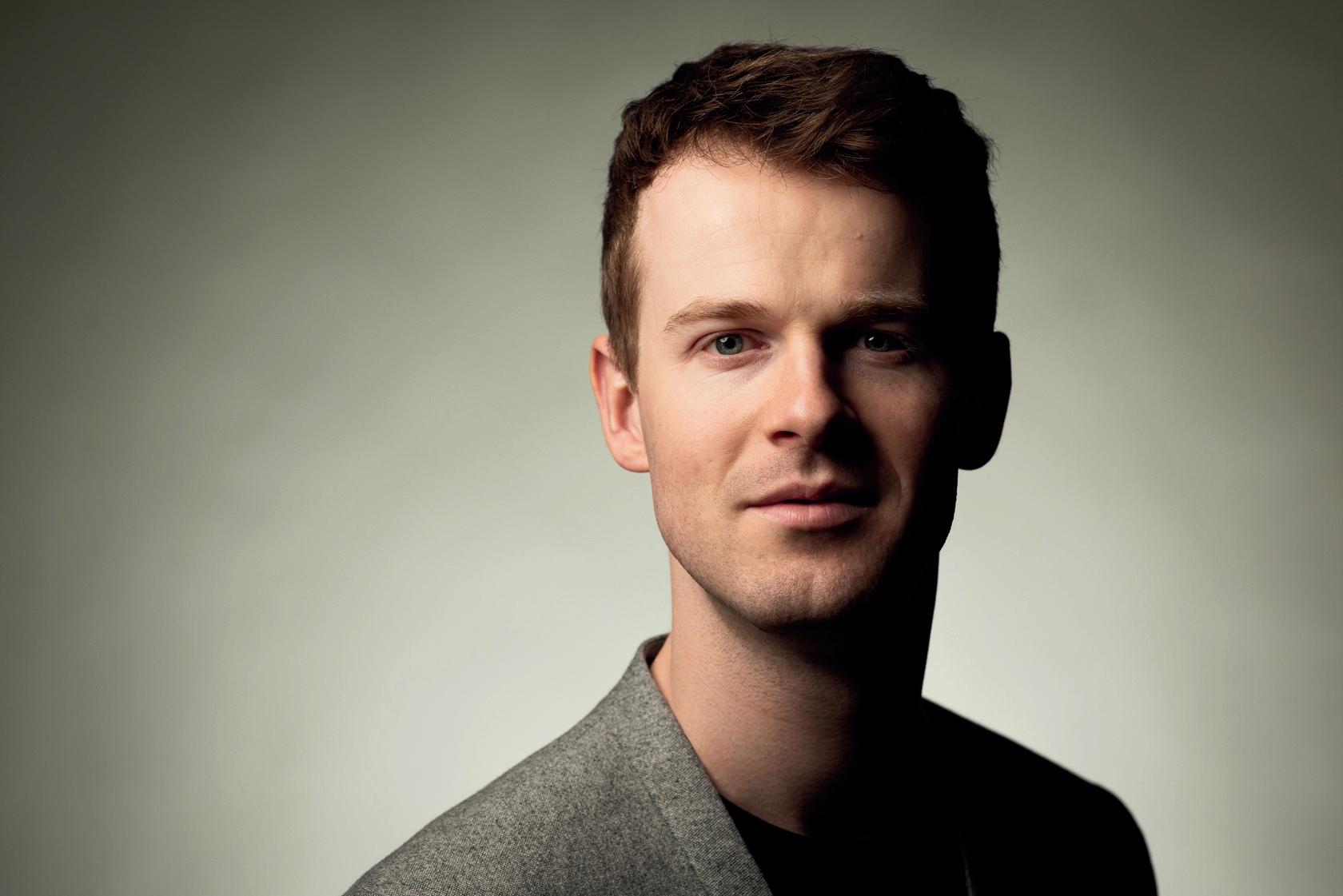
Andrew Forbes is an innovative Scottish organist, who celebrates classic works whilst exploring new possibilities for the organ—particularly in his frequent collaborations with composers. Appointed as Director of Music at Glasgow Cathedral aged 21, his playing creates ‘a symbiosis between artist and instrument’ (The Montrealer), earning him invitations to perform at venues including Philharmonie de Paris and St Paul’s Cathedral (London).
Andrew advocates for the organ’s place in modern society; in 2023 he was invited to join the board of Scotland’s Churches Trust, where he chairs their Music Forum, and he is a founder of ‘Sowne of Organe’, a project surveying Scotland’s most significant historic organs (www.sowneoforgane.com).
Away from the console, Andrew directs the critically acclaimed Glasgow Cathedral Festival – ‘a minor miracle’ (VoxCarnyx) – with bold programming that brings life to the city’s oldest building. He teaches at Glasgow University and RCS, is a frequent guest with ensembles including the BBC Scottish Symphony Orchestra, and is in demand as a collaborative pianist, sound engineer and producer.
Andrew has learned with teachers including Dame Gillian Weir, Jan Waterfield and Hans Fagius, supported by awards from the Hope Scott Trust and the McGlashan Charitable Trust. He is a First Prize winner of the Northern Ireland International Organ Competition, a finalist at St Albans International Organ Competition, an Associate of the Royal College of Organists, and winner of the RCS Prize for Early Music. Andrew loves food, drink, and spending any free time with friends— preferably near water or up a hill.
www.andrewforbes.org
SUNDAY LUNCHTIME • 28 JULY 2024
Giovanni Bassano Ricercata quarta (Ricercate, passaggi et (c1561–1617) cadentie, 1585)
Adrian Willaert Io amai sempre (Musica nova, 1559) (c1490-1562)
~
Ludovico Agostini Contrapuncto primo (1534-1590)
Luzzasco Luzzaschi Ch’io non t’ami, cor mio (Madrigali per cantare et (c1540-1607) sonare uno, e doi, e tre soprani, 1601)
Anon. Madre non mi far monaca with diminutions by László Rózsa
Raffaella Aleotti Vidi speciosam (Sacrae cantiones, 1593) with (c1570-c1646) diminutions by László Rózsa
~
Anon/Emilio de’ Cavalieri Aria di Fiorenza/Ballo del Granduca (1550-1602)
Biagio Marini Romanesca (Arie madrigali et corenti a (1594-1663) 1.2.3, opera terza, 1620)
Giovanni Girolamo Kapsberger Toccata nona (Libro primo d'intavolatvra di lauto, (1580-1651) (1611)
Giulio Caccini Odi Euterpe (Le nuove musiche, 1602) (1551-1618)
~ Marco Uccellini Sinfonia prima (Sinfonici concerti, 1667) (1603-1680)
Giovanni Battista Fontana Sonata seconda (Sonate a 1. 2. 3, 1641) (c1580/89 – c1630)
Praised for his “beautiful tone” and “subtlety” (MusicWeb International), Hungarian-born László Rózsa enjoys a versatile musical career as a recorder player, researcher, and educator. He is a principal player with Scotland’s Dunedin Consort, and he is a founding member of the chamber groups Ensemble 1604 and Scots Baroque, exploring electroacoustic new music, improvisation, and folk styles. He has appeared numerous times on BBC Radios 3 and 4, and his playing can be heard on albums published by Linn Records, Resonus Classics, Veterum Musica, TNW Music, and Huth-Records. As a researcher his primary interest is the stage behaviour and interaction of performers in various musical cultures. In the autumn of 2023 he took up a lectureship and the position of Director of Performance at the University of Nottingham.
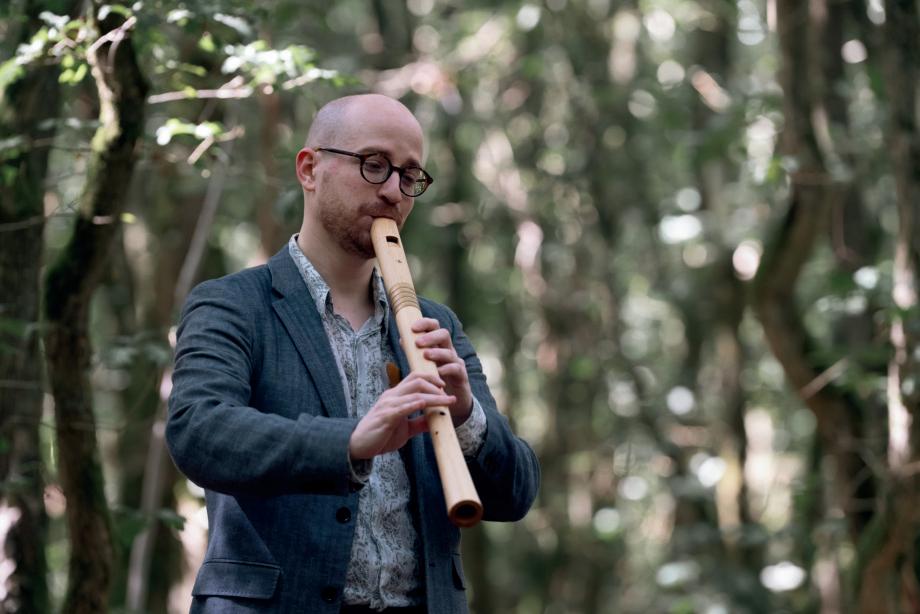
Lutenist Alex McCartney enjoys a selective performing schedule, whilst spending much of his time working on creative software projects at Considerate Digital. Alex is fascinated by the process of making recordings and in 2012 this interest lead him to set up the 'micro' record label Veterum Musica with the recording engineer Joseph Chesshyre.

Alex specialises in chamber music. His continuo playing has been described as 'sinewy and sensuous, ornaments rarely exaggerated' Observer. He primarily performs recitals, accompanying artists such as Iestyn Davies, Alison Balsom, Rachel Podger, Monica Huggett, Peter Whelan, Bojan Cicic, Sabine Stoffer (Ensemble Libro Primo), and Tabea Debus.
Alex is a life member of The Royal Society of Musicians.
Alex teaches the lute at the University of Aberdeen and at home in Glasgow. He has also created an Online Lute Tutor to encourage the proliferation of lute playing and enthusiasm.
The Glasgow Barons are committed to bringing diverse folk together through music events, workshops and courses throughout Govan’s historic venues.
Working across Govan to regenerate the area with music. They partner with Glasgow City Council offering ‘Baby Strings’ to local primary schools, run Musicians in Exile for asylum seeking musicians and create collaborations to bridge the divide between rappers and classical musicians, often supporting the recovery community in the process.
Find out more about the Glasgow Barons, by visiting: www.glasgowbarons.com
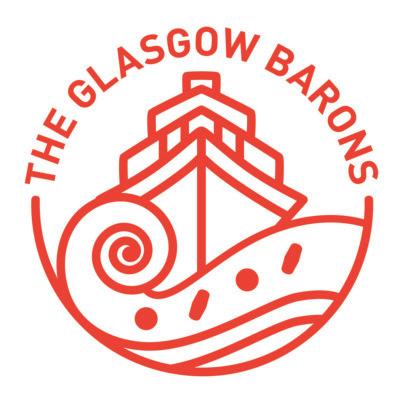
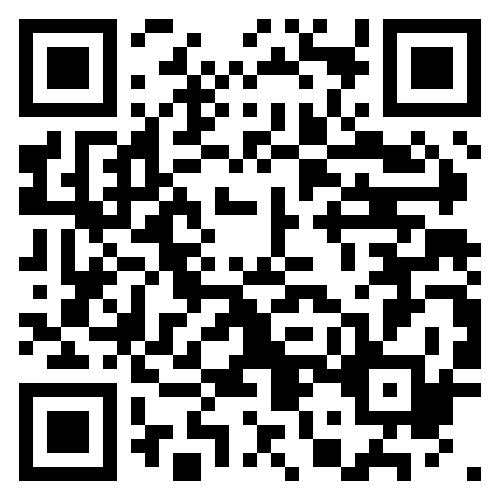

Campbell Parker General Manager

